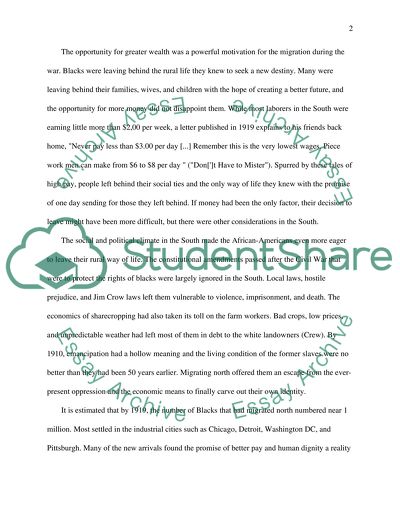Cite this document
(“The Great Migration, Cause and Effect Essay Example | Topics and Well Written Essays - 1500 words”, n.d.)
The Great Migration, Cause and Effect Essay Example | Topics and Well Written Essays - 1500 words. Retrieved from https://studentshare.org/miscellaneous/1508962-the-great-migration-cause-and-effect
The Great Migration, Cause and Effect Essay Example | Topics and Well Written Essays - 1500 words. Retrieved from https://studentshare.org/miscellaneous/1508962-the-great-migration-cause-and-effect
(The Great Migration, Cause and Effect Essay Example | Topics and Well Written Essays - 1500 Words)
The Great Migration, Cause and Effect Essay Example | Topics and Well Written Essays - 1500 Words. https://studentshare.org/miscellaneous/1508962-the-great-migration-cause-and-effect.
The Great Migration, Cause and Effect Essay Example | Topics and Well Written Essays - 1500 Words. https://studentshare.org/miscellaneous/1508962-the-great-migration-cause-and-effect.
“The Great Migration, Cause and Effect Essay Example | Topics and Well Written Essays - 1500 Words”, n.d. https://studentshare.org/miscellaneous/1508962-the-great-migration-cause-and-effect.


